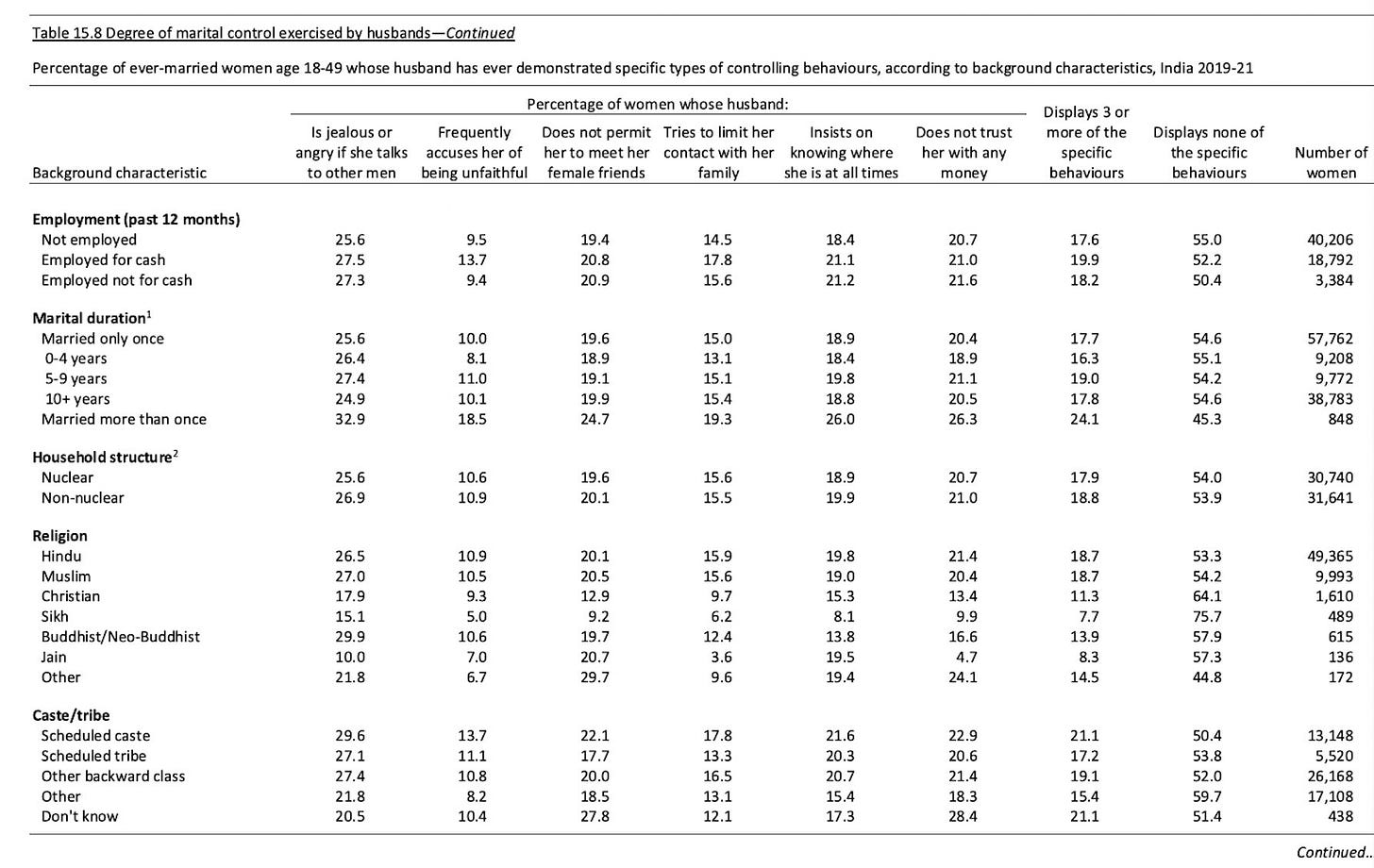Patriarchal Backlash
Indian women who have more education or higher earnings than their husbands have the highest likelihood of frequent and severe violence - finds Abigail Weitzman.

I suggest this is a consequence of gender status beliefs and the caste system. If men feel entitled to higher status, but cannot keep their wives cowed via economic dependency, they may maintain dominance through force. Since caste networks are consolidated by marriage, and divorce is totally humiliating, she remains trapped.
In countries with intensive kinship (by caste, clan or tribe), female employment may provide autonomous spending power, but does not necessarily advance marital equality. Knowing she cannot leave, he beats with impunity.
For the past few years, I’ve focused on why is female employment so low in South Asia. But in endogamous societies, where women cannot exit abusive marriages, paid work in the public sphere doesn’t seem to advance conjugal equality.
Examining the latest Demographic and Health Survey data, I find that Indian women are just as likely to have experienced marital control regardless of whether they were recently employed. The only difference is that women who work outside the home are more likely to be accused of infidelity (see table below).
Just as Alesina et al find across Africa, endogamy seems to entrench intimate partner violence. That’s what I call ‘the Patrilocal Trap’.







I think if a man lifts then he doesn't need to beat her.
She fears (Respects) him anyway.
There's also the reality that a 6-pack does a lot to smooth marital relations.
ਅਕਾਲ
I found this very interesting, however, I think successful women finding it hard to stay married, can be an across-the-board thing (Folke and Rickne, 2020). However, how men deal with it (either divorce or violence) is influenced by social norms, as the paper suggests.